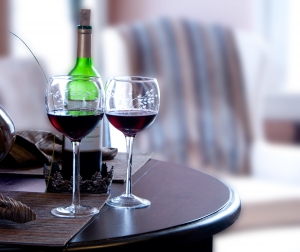Australian winemakers, including popular brands Banrock Station and Blossom Hill, are producing wines with lower alcohol content in order to win over British customers, according to a report on The Herald Sun.

This comes in the midst of Britain’s crusade against alcohol issues, which include violence and alcohol-related diseases, particularly prevalent in the middle class.
Aussie wine producers are cutting alcohol content of their overseas range by more than half of the normal figure to 5.5 percent. Normally Australian red wines contain 13.5 percent of alcohol, with some brands carrying as much as 18 percent, says The National Health and Medical Research Council (NHMRC).
With “light” wine selling for as low as $8.60 per bottle it looks like wine producers have found a new market to sell to, with the unique proposition being consumers can enjoy their dose of wine without being anxious about the drive home.
In a feature on Daily Mail UK, British Health Minister Earl Howe says the market for “light” or reduced alcohol wines has been increasing rapidly. Howe has insisted that low alcohol wines will benefit customers in the long term as concerns over liver diseases and alcohol consumption-related cancers haunt Britain.
‘The government has consistently made the case for change to the EU wine rules to permit reduced and de-alcoholised products to be called wines,’ Mr. Howe said.
According to EU laws a wine has to have a minimum of 8.5 percent alcohol content for it to be called wine, but Mr. Howe is lobbying for this definition to be changed, fearing the low-alcohol wines will not be successfully marketed unless they are also officially classified as wine.
However wine experts in Europe have criticized the move, saying low alcohol wines will only prompt people to consume more wine in order to get to the point where they are drunk.
Wine connoisseur Charles Metcalfe says the problem with reducing alcohol in wines is that the process also takes some of the flavor along with it.
‘You are left with something that really just does not taste like wine.”
‘Of course it is a good idea for people to drink less alcohol,” Mr. Metcalfe said. “But, personally, I don’t believe that going for reduced alcohol wine is the best way to achieve a reduction in consumption.”
Mr. Metcalfe says it is best to leave wine alone and drink varieties with relatively low alcohol such as German wine made of Reisling grapes and Italian moscato wines.













